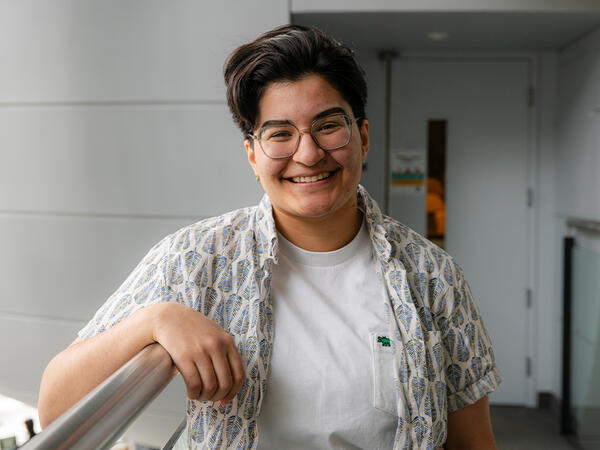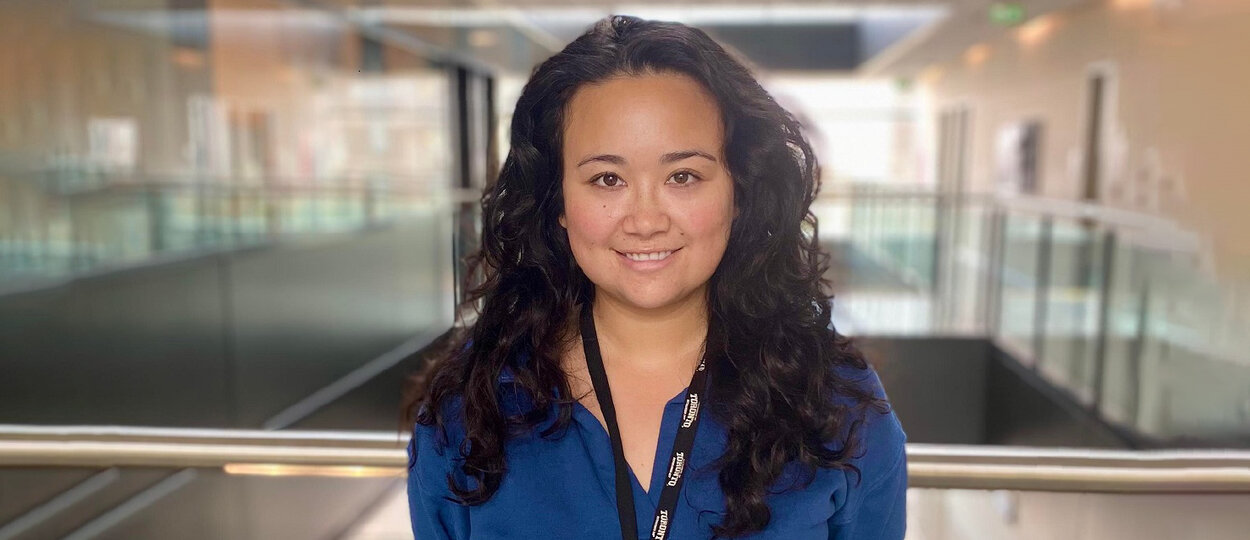What is your academic background and why is this area of research important?
I completed my undergraduate and master’s degree at the University of Guelph in molecular and cellular biology, with a concentration on epigenetics. After I graduated, I spent eight months working in industry before I decided to pursue a Ph.D. I am currently in the field of developmental toxicology, and my research focuses on the impact of oxidative DNA damage from reactive oxygen species on epigenetics and gene regulation. This mechanism has been hypothesized to have a role in neurodevelopmental disorders, such as fetal alcohol spectrum disorders (FASD). FASD is prevalent in our GTA community; therefore, a better understanding of the mechanisms can equip us to help these suffering individuals.
What led you to your current research group?
When I was applying to Ph.D. programs, I wanted to expand my skill set and enter a different field of research, but I was still interested in epigenetic mechanisms. I found Dr. Wells and his research group and learned about how he studied altered epigenetic mechanisms in a developing fetal brain and how this can impact brain function later in life. Entering a new field of science was daunting, especially since I had never taken a toxicology class before and had not learned the basics. However, I believe this offered me a unique perspective on my project and in the lab.
What are some of the challenges you had to overcome within your research?
The biggest challenge of my degree has been working with animal models. I have not fully overcome this challenge, but I have learned how to manage it. Another challenge I had was learning how to manage my time effectively. I had to master the ability to prioritize important tasks or experiments and be organized to stay on top of deadlines. Learning to manage my time in the lab has allowed me to have more free time outside of the lab.
How do you see your current research playing a role in your career?
After having the chance to speak at conferences with others in the field, I learned about how many jobs are available in the toxicology field. This degree has opened a number of doors I did not know existed, and it is exciting to have all these options for different types of scientific careers. I have always enjoyed wet lab work; at this point, I hope to still work at the bench in my next position.
What do you like to do when you are not working on research?
I spend most of my free time with my dog, Beans. I enjoy trying new restaurants and reading. When I have a lot of time, I like to sew clothing for myself, and I have recently tried to tackle some dog clothing patterns.
More News
Image

Faces of PharmSci: Mahya Rezaeifarimani
Supervised by Prof. Shirley Wu, PhD student Mahya Rezaeifarimani is developing smart nanoparticles to help make radiation therapy work better for brain tumours by targeting low-oxygen areas that often make treatment less effective.
Read More
Image

Dean Lisa Dolovich reappointed for second term
Professor Lisa Dolovich has been reappointed for a second term as Dean of the Leslie Dan Faculty of Pharmacy, University of Toronto, effective July 1, 2025, to December 30, 2030.
Read More
Image

Pharmacy Summer Camp gives high school students insight into pharmacy profession
A new summer camp based at the faculty will give high school students a range of experiences in pharmacy and pharmaceutical sciences.
Read More
